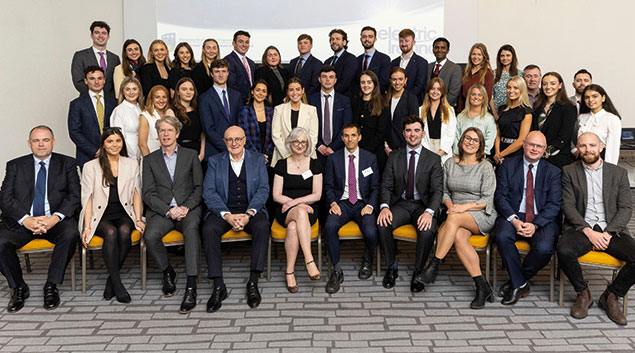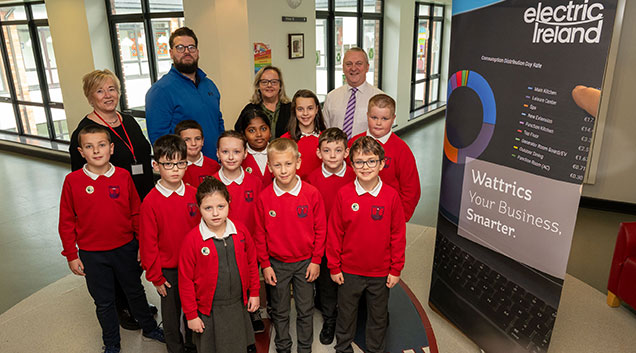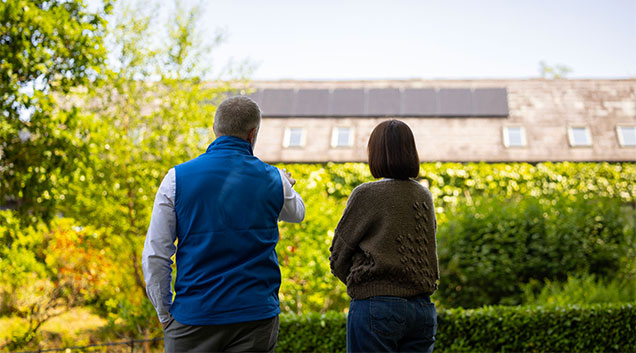How the Circular Economy can tackle global challenges

Last week, Electric Ireland and UCD hosted the latest in their Business Breakfast series, where a panel of experts spoke of the challenges and opportunities facing businesses as they adapt to the circular economy
This year’s event, which marked 20 years of Electric Ireland and UCD collaborating, heard from circular economy expert Mike Higgins, a circular economy commercialisation specialist; Kevin O’Connor, a Professor of Microbiology and Biotechnology at UCD; and Joanne O’Rourke, Resource Efficiency Officer at Dublin City Council.
Discussing the opportunities presented by the transition to a circular economy, Mike Higgins highlighted the need for a change in mindset by businesses and consumers. Higgins noted that there needs to be a move away from the mentality that ‘old’ and ‘used’ products were automatically deemed inferior, and instead, towards a growth in the repurposing and recovery industry. He identified the challenges in balancing globalisation with the need for regionalised supply-chains, and a move away from over-production.
Adding to the idea of circularity as an emerging theme in the industry, Professor Kevin O’Connor, pointed to the fact that companies are still at an early phase in adapting to more circular business models, but that there was opportunity out there for companies to become leaders in the space.
Professor O’Connor spoke of his involvement in a carbon neutral dairy farm in Co. Cork and highlighted the important role of the bioeconomy in a circular economy. Professor O’Connor also stressed the importance of eliminating food waste - something that provided both social and commercial opportunities for businesses moving forward.
Speaking on her work with Dublin City Council, Joanne O’Rourke noted the important role that the circular economy played in the upcoming Dublin regional economic plan. Ms O’Rourke highlighted plans by Dublin City Council to introduce a circular economy hub to provide businesses with the information needed to transition to more circular business models. Ms O’Rourke also noted that change was now not only being led by business requirements, but also by a more sustainably conscious consumer base, representing a generational change in attitudes towards sustainability.
At the event, Chief Executive of ESB, Paddy Hayes, emphasised the role of the circular economy in the ESB strategy moving forward.
“At its heart, the circular economy is about collective action and responsibility – doing what we can across all strands of society to make a difference. Earlier this year ESB announced a transformative drive to achieve net-zero by 2040 and to put in place the infrastructure and services to enable customers to do likewise. As part of this new strategy, we are focusing our efforts on the areas where we can make the biggest impact – creating and connecting sustainable, reliable, affordable electricity – and supporting the customers and communities we serve to achieve net zero”, Mr. Hayes told guests.
Mr Hayes also noted the importance of empowering younger generations to help drive this change, something reflected in Electric Ireland’s long-standing partnership with UCD which sees students from the school’s Smurfit Marketing Development Practice organise and host the business event with support from Electric Ireland.
“I have had the honour of meeting a number of the students from the latest programme who are hugely impressive and have such drive to balance their educational progress with gaining practical experience for their careers ahead. I look forward to seeing the contributions they will make to businesses in this crucial time of transformational change”, Mr. Hayes added.



